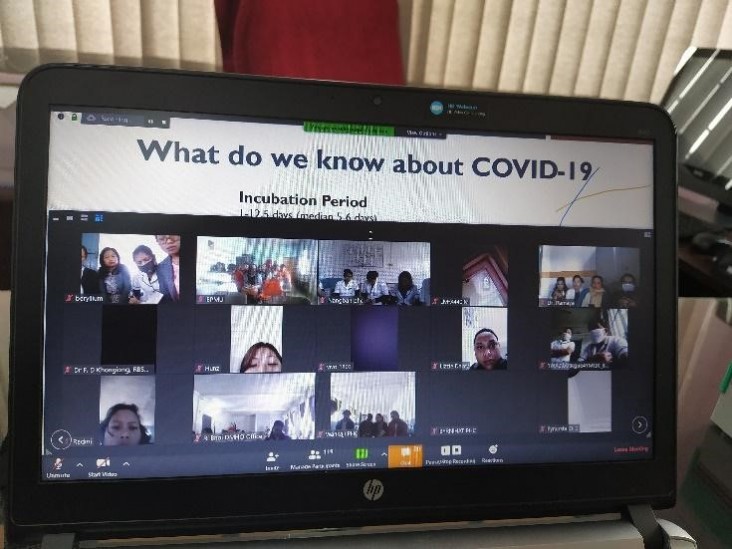India
- History
- Our Work
- Transforming Development Through Innovation & Partnership
- U.S.-India Triangular Cooperation
- Partnership for Energy Access and Security
- Partnership for Sustainable Forests in India
- Partnerships for Health
- Partnership for Education
- Partnership for Water Sanitation and Hygiene (WASH)
- Partnership for Food Security
- Partnership for Gender Equality
- Investing in Afghanistan
- Foreign Assistance Data
- Newsroom
- Newsletters and Fact Sheets
- Speeches
- Resources For Implementing Partners (RFIP)
- Careers
- Partnership Opportunities
- Success Stories
Speeches Shim

As reports of the spread of the novel coronavirus began appearing in India, Annie Suchiang had her own fears and apprehensions. She manages the state program for community health workers, known in India as Accredited Social Health Activists (ASHAs), and is in charge of the Comprehensive Primary Healthcare (CPHC) Program in the far northeastern state of Meghalaya. One of her primary concerns was building the capacities of frontline health workers to face COVID-19, the new pandemic the world is still grappling to understand.
She supervises a large number of frontline health workers, many located in remote areas of the state and all in need of timely and accurate information on how to prevent the spread of the disease. With a nationwide lockdown in place, conducting physical training on COVID-19 would be impossible.
To address this challenge, USAID’s health systems strengthening project, NISHTHA, implemented by Jhpiego, quickly developed a learning resource package and training plan for frontline health workers in program intervention states, which include Meghalaya, Manipur, Mizoram, Sikkim, Nagaland, Arunachal Pradesh, Chhattisgarh Madhya Pradesh and Jharkhand. NISHTHA conducted training using virtual platforms to enable health workers to participate remotely. More training is planned for other health workers in the coming weeks. NISHTHA also provided communication materials the health workers can use to raise awareness and help prevent COVID-19 in their communities, including how to make and use face masks.
“At a time when classroom trainings were not feasible, especially when mobility was limited, the NISHTHA team effectively conducted the trainings through virtual platforms without compromising quality,” explains Suchiang.
The state of Meghalaya has not yet reported any cases of COVID-19, but thanks to these proactive measures, health workers and their communities are now better prepared against the virus.

Comment
Make a general inquiry or suggest an improvement.